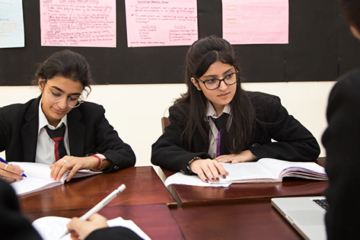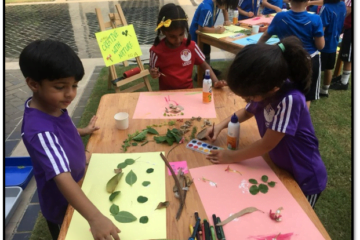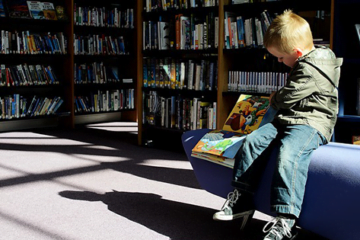The most important thing to do when considering enrolling or relocating your child to another school is to consider your child’s needs. Do they need extra help in areas that are causing them trouble? Is your child struggling with bullying? Are there a lot of distractions at their current school? If you answered yes to any of these questions, you might want to consider enrolling your child in an International Baccalaureate school.

IB Schools
There are a plethora of IB institutions that differ in structure, curriculum, and even the price of the programs. A few of these institutions are just private schools while others are much more multicultural, giving the children a chance to learn a wider variety of disciplines.
The IB curriculum in India is a well-respected, upper-level high school curriculum that is rigorous and challenging. The program is a great fit for students who are not afraid of a challenge but also allows for students who need to work at a slower pace. IB schools and universities recognize IB students for the effort and dedication they put in. Students who take IB classes and tests are preparing for a university experience beyond high school.
It is a curriculum that offers more options for the family by providing a more balanced curriculum and more rigorous courses. IB courses are overseen by the International Baccalaureate. This global organization offers several diploma programs. They offer the Primary Years Program, Middle Years Program, and Diploma Program. These programs are similar and they differ in the way that they are initiated.
Developed in Geneva, Switzerland in the late 1960s and soon spread to countries around the world, including India. Middle school students taking the classes are required to take a test, but high school students don’t have to take the test. The curriculum teaches a variety of topics, including languages, science, math, and humanities. The goal is to develop well-rounded students who may consider attending college in the future.
The IB curriculum for children from ages 3 to 19, consists of six subjects, namely languages (English or French), a second language (beginning in grade seven), mathematics, the sciences, history, arts, and a theory of knowledge (TOK) class. It is a challenging curriculum but it is worth it, especially when it comes to applying to and getting accepted into universities worldwide.
The IB curriculum was adopted in the year 1976 in India. Currently, there are approximately 150 plus schools in India following the IB curriculum.
What makes the IB curriculum in India unique
This curriculum is intended to give students a better education that is expected to allow the student to pursue higher education in college. While this curriculum is a little bit more difficult, it gives the student a great foundation in various subjects and lets the students focus on their strengths while also improving their weaknesses. IB curriculum in India allows the student to decide on what they want to do and pursue higher education in that field and gives them a head start. IB is a great curriculum, and it is a great program for students of all ages.
Hands-on Training Experience
Our program provides students with the education and hands-on training needed to succeed in the business world. IB students are taught to think critically about their actions and understand why what they’re doing is correct. They’re encouraged to create and innovate with their ideas, whether they’re huge in scale or small. Our main teaching method is case studies, as this is the best way to prepare students for real-world situations. Our program is effective because of the knowledge we provide and the diverse group of teachers and alumni who are willing to give back.
Theory of Knowledge
The IB courses are very structured. All students have to take Theory of Knowledge (TOK) where they can learn the basic principles of ethics. It is not necessary to need marks to pass a course in the IB syllabus, but it encourages students to think more critically. Extended Essay (EA) encourages students to apply the knowledge they learn in school to a real-life issue while they are writing around 5,500 words. This application of knowledge helps them not just learn from school but in the real world.
If you look at what the IB certificate is about, it’s not just about sitting the exams to prove how clever you are. It’s a way to look critically at the real world and by doing so, think about how to make your life, your family, and your friends’ lives better.
Emphasizing the Importance of Social and Emotional learning
Instead of rushing children along at their own pace, the IB Program believes in emphasizing the importance of social and emotional learning, creativity, and a holistic approach to education.
In addition to classes like math, language, and science, the IB Program offers a variety of elective courses that allow students to pursue their passions. The IB Program is an excellent choice for students who are looking for a challenging and innovative education.
Prepare Globally Competent Students
The International Baccalaureate (IB) curriculum is designed in a way that a student will grow to become a globally competent individual. This is achieved by having students possess the skills needed to achieve success in an ever-changing world. To achieve this, the IB curriculum focuses on developing the student’s academic, personal, emotional, and social skills. The IB also stresses community service and engagement which encourages a refined perspective on the world. The curriculum is designed in a way that students are encouraged to expand their horizons and develop a global outlook.
Finding the balance in education
IB student balances sports and club activities, has a passion for debating, and has above-average grades in English and math, is observed to have a balanced study habit, efficient time-management skills, a positive attitude towards work, and an ability to handle pressure well. The student is shown to be a quick learner and an independent worker. As a result, he has great study skills and a good work ethic.
Encourages students to link the various subjects
The IB curriculum encourages students to link the various subjects, and substantiate their learning with authenticating evidence. However, while the IB curriculum is in place, the challenges of teaching IB courses and facilitating real learning are quite different. Hence, teachers need to be consultative, flexible, and creative in addressing the needs of their students.
It is not enough to take your classes and move on. You are expected to provide evidence of your learning by linking the subjects together through group work, presentations, and personal projects. It’s important to not just collect information and regurgitate it on tests. Instead, fully grasp the concepts, develop your skills, and discuss how your new knowledge can apply to your future.
With the common core being fully implemented in many schools, it’s important to make sure you’re helping your student learn the materials. The International Baccalaureate is a curriculum that allows students to learn a broader range of subjects than they would in a normal class. By taking this class, the student will be exposed to the many different cultures and ways of life that are out there. They will develop a more global understanding of the world and this will help them to succeed in the future.
The IB curriculum is a globally recognized curriculum that was specifically developed to focus on a student’s all-around development. It expands their minds, providing them with a unique opportunity to gain experience in a global society. The IB curriculum in India helps students develop into leaders of tomorrow by giving them the proper tools, and helping them to be ready to blaze their paths and navigate through life’s challenges. It is important to understand that IB courses are designed to be more intense than a comparable school program, hence it is best if you only apply for IB schools after you have been properly exhausted by a regular school program.


